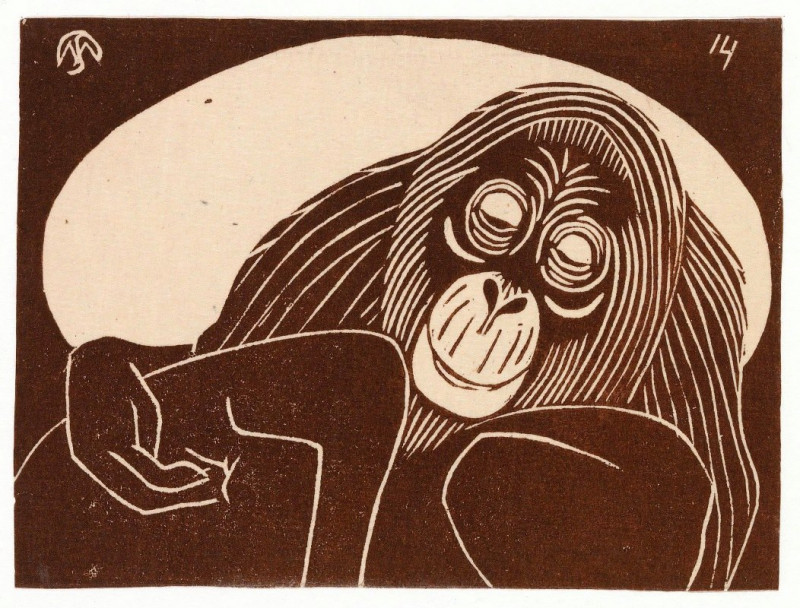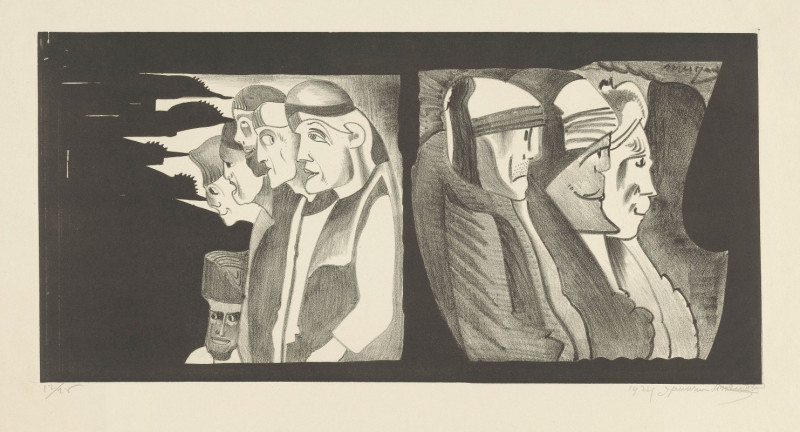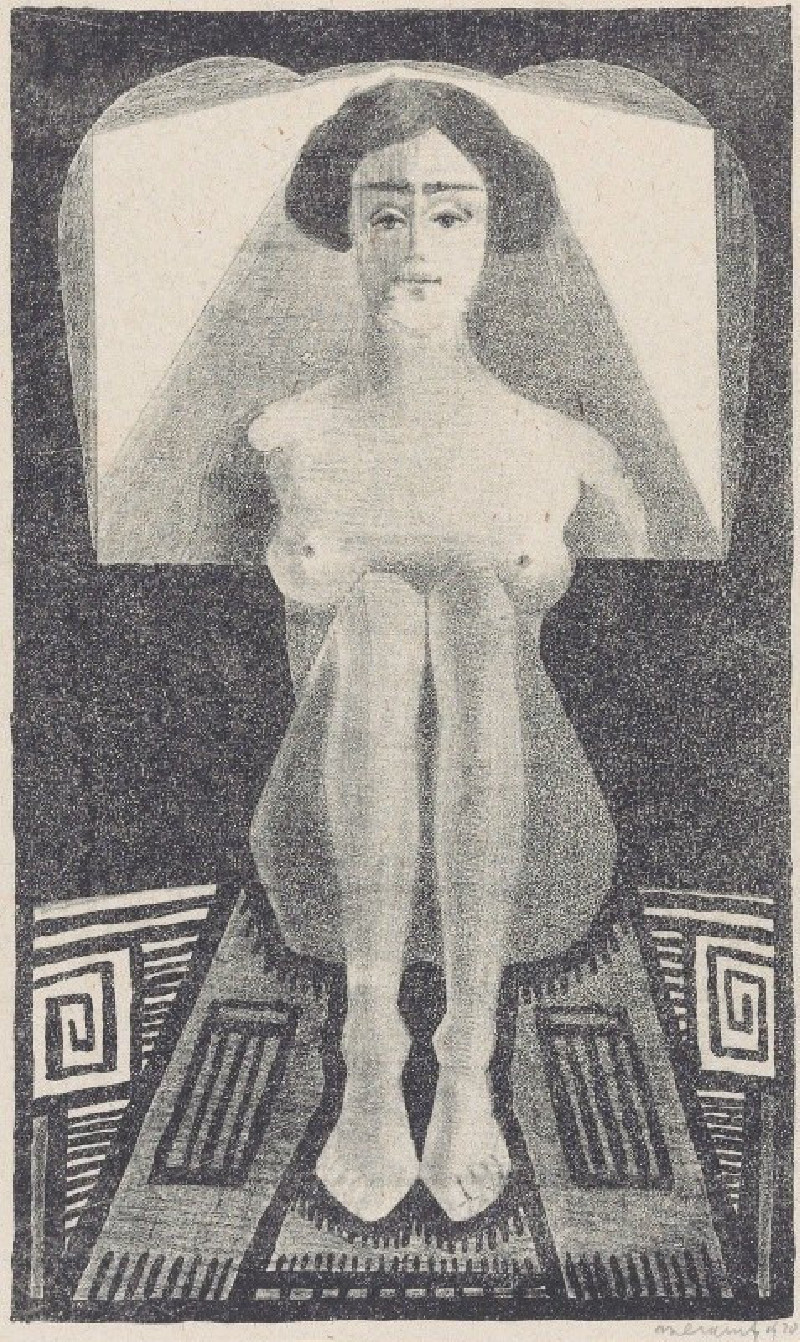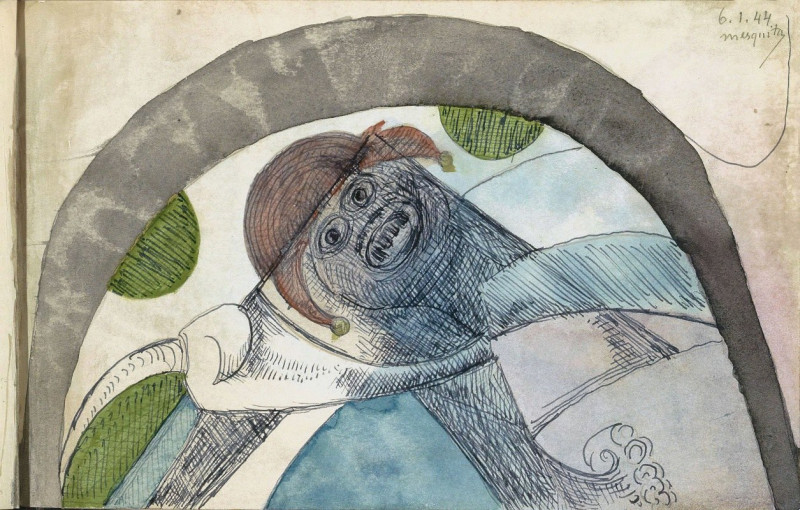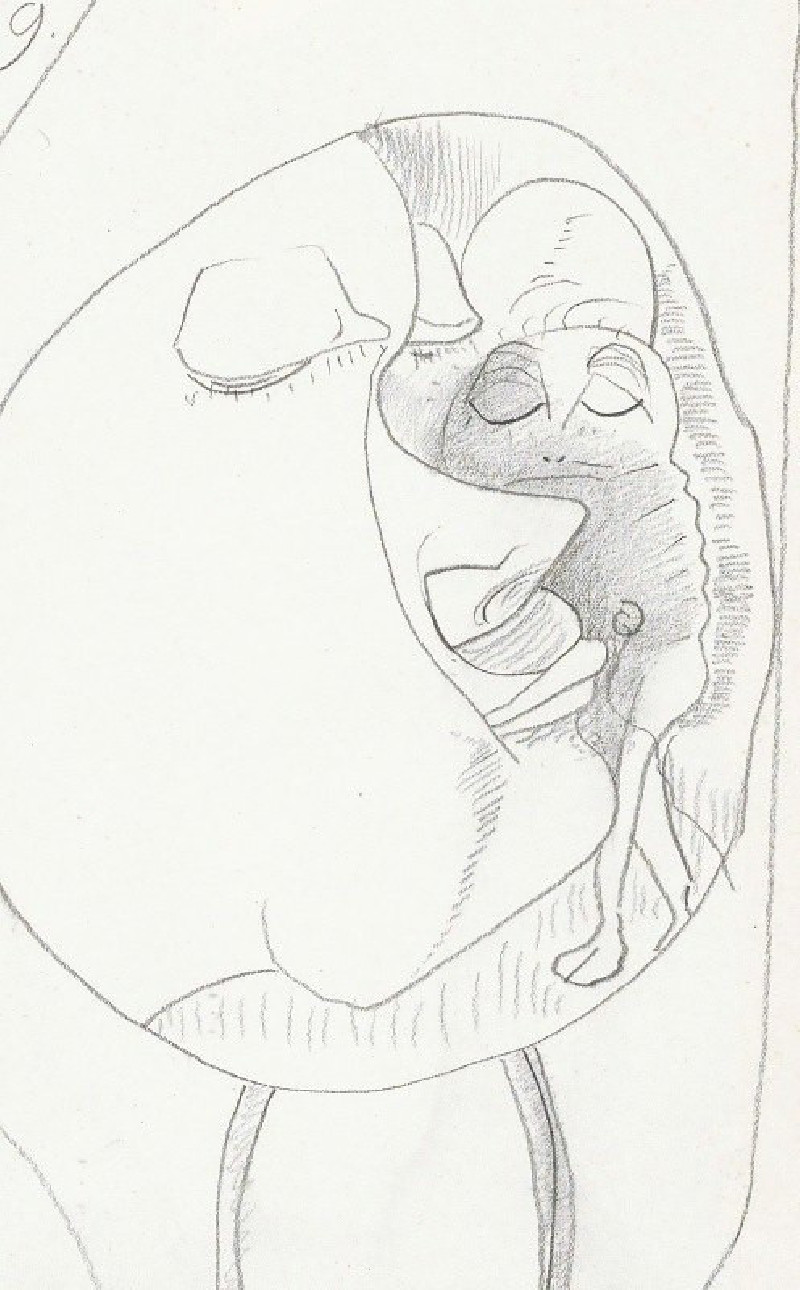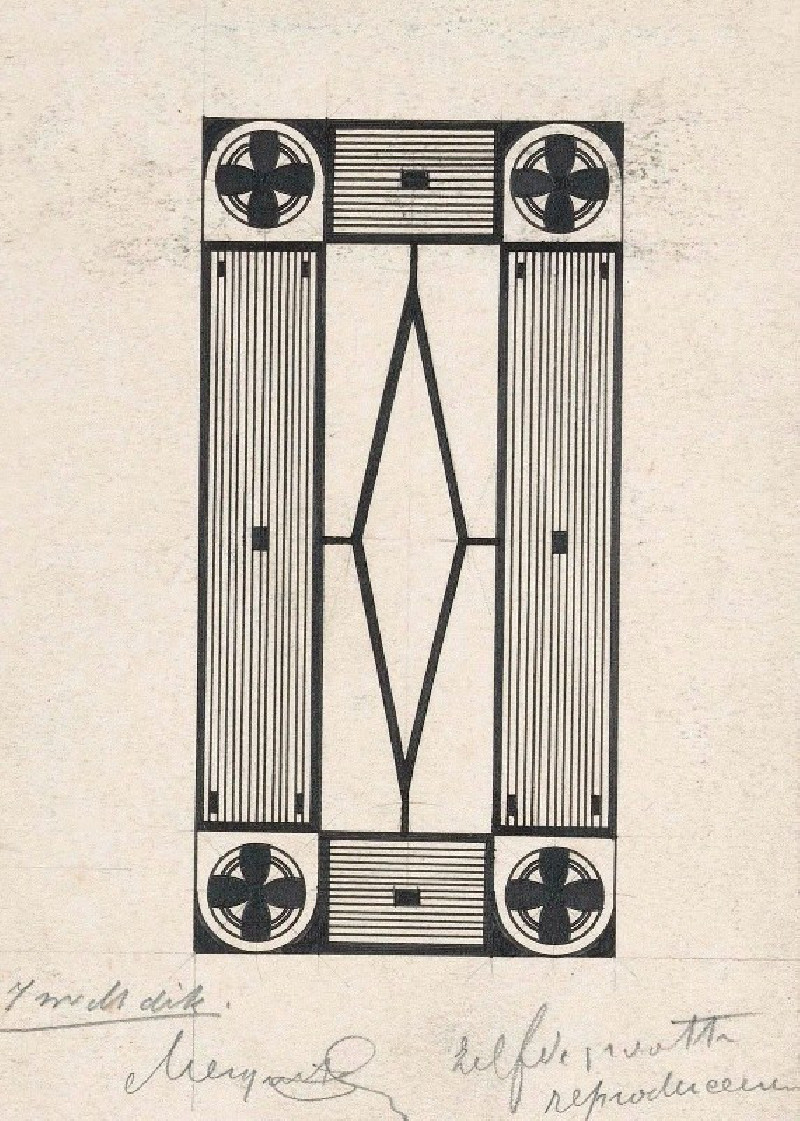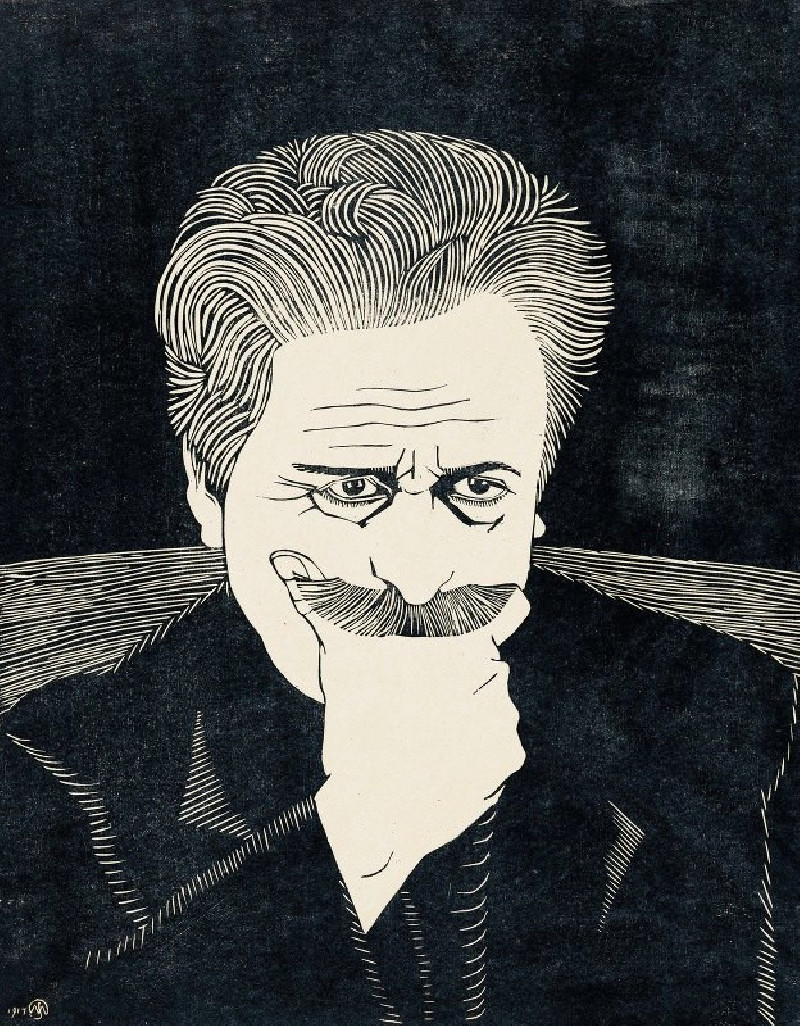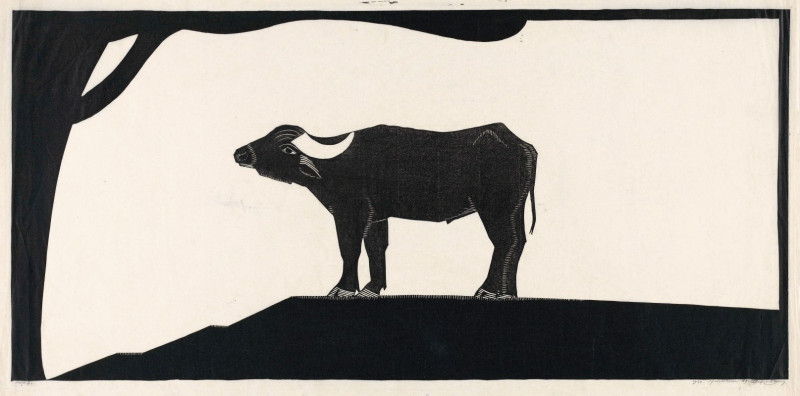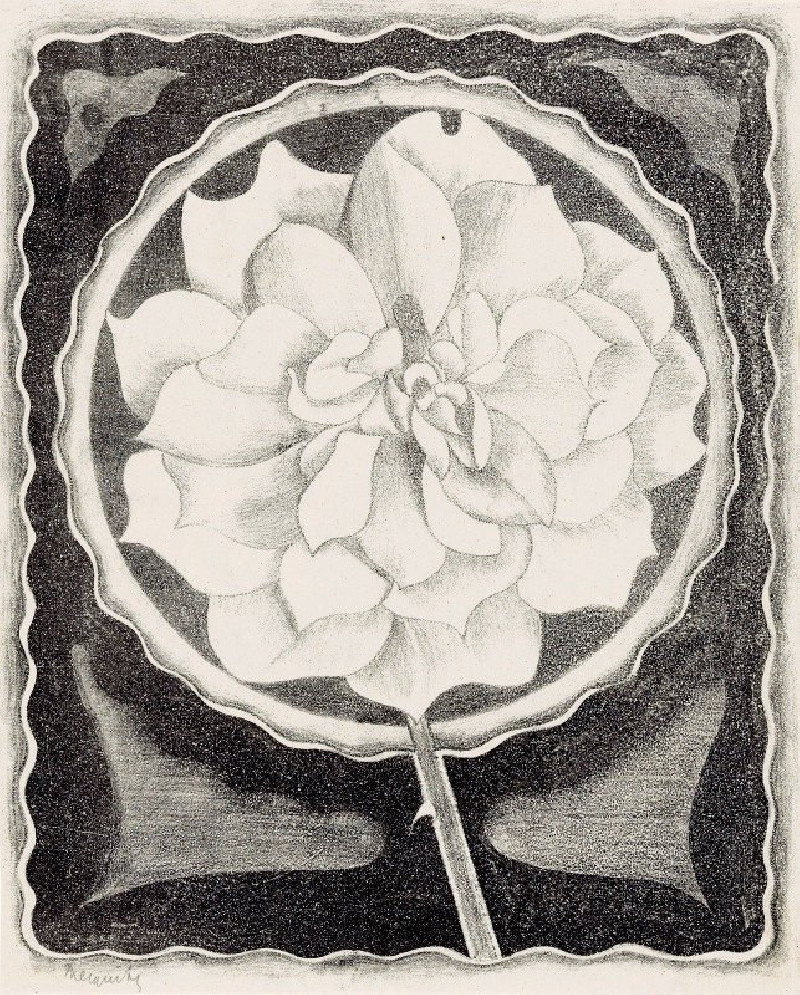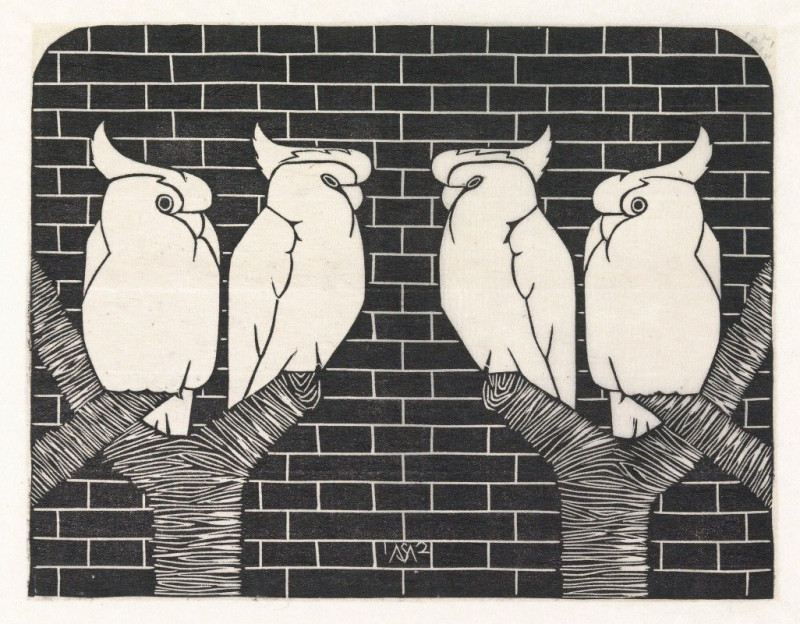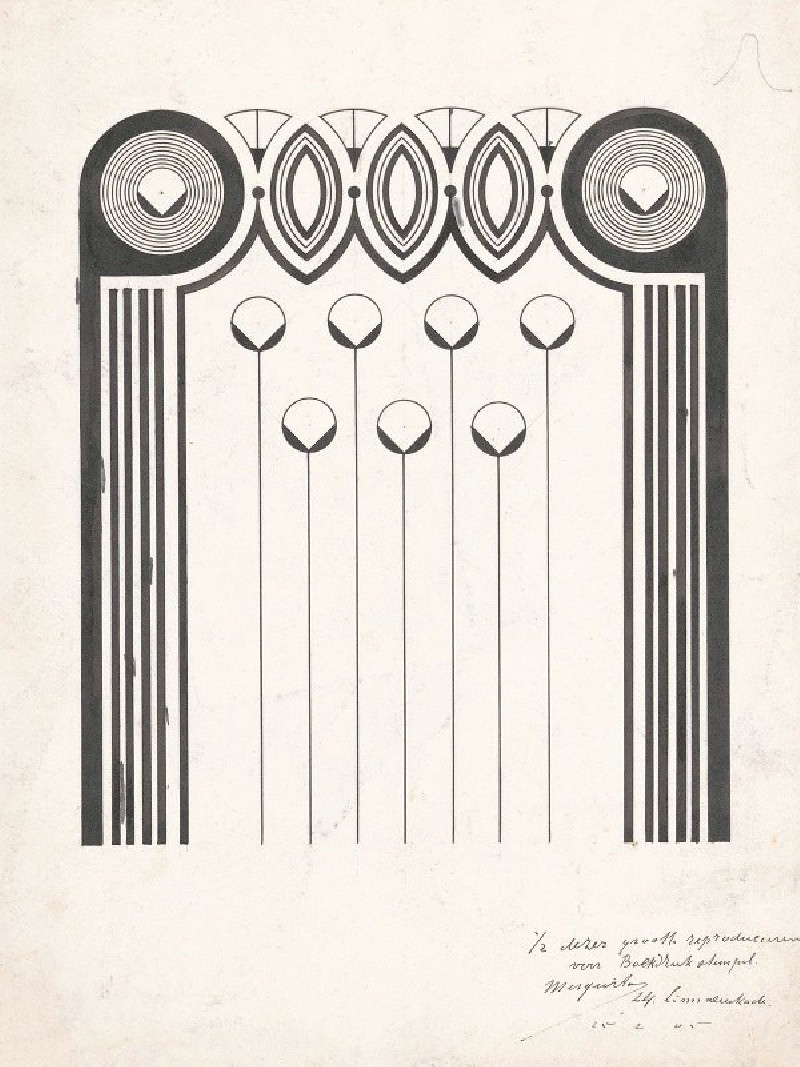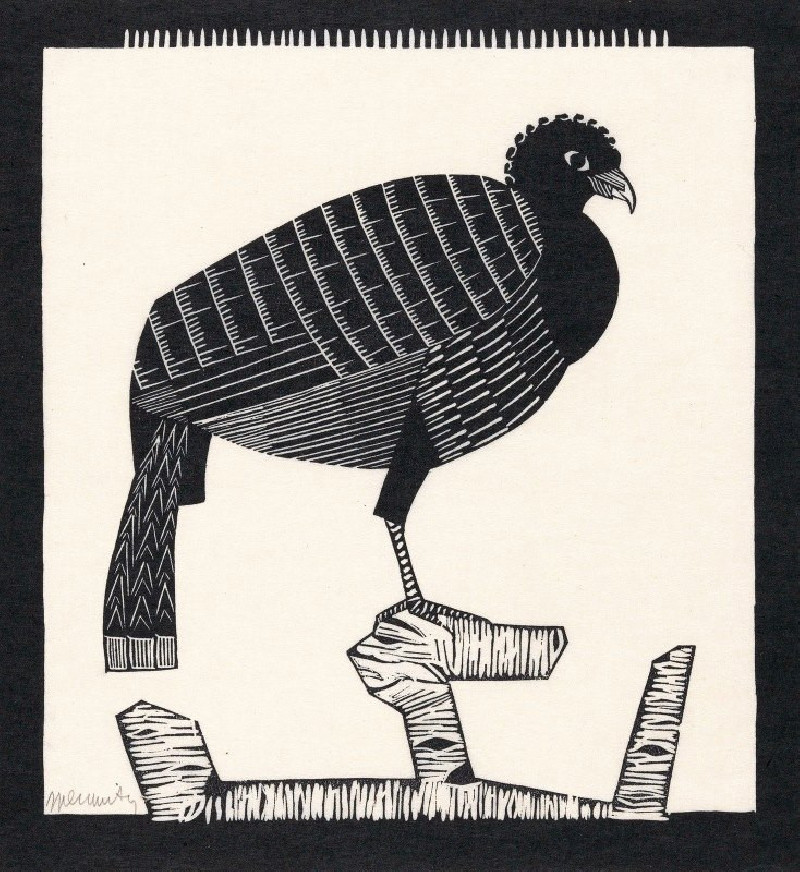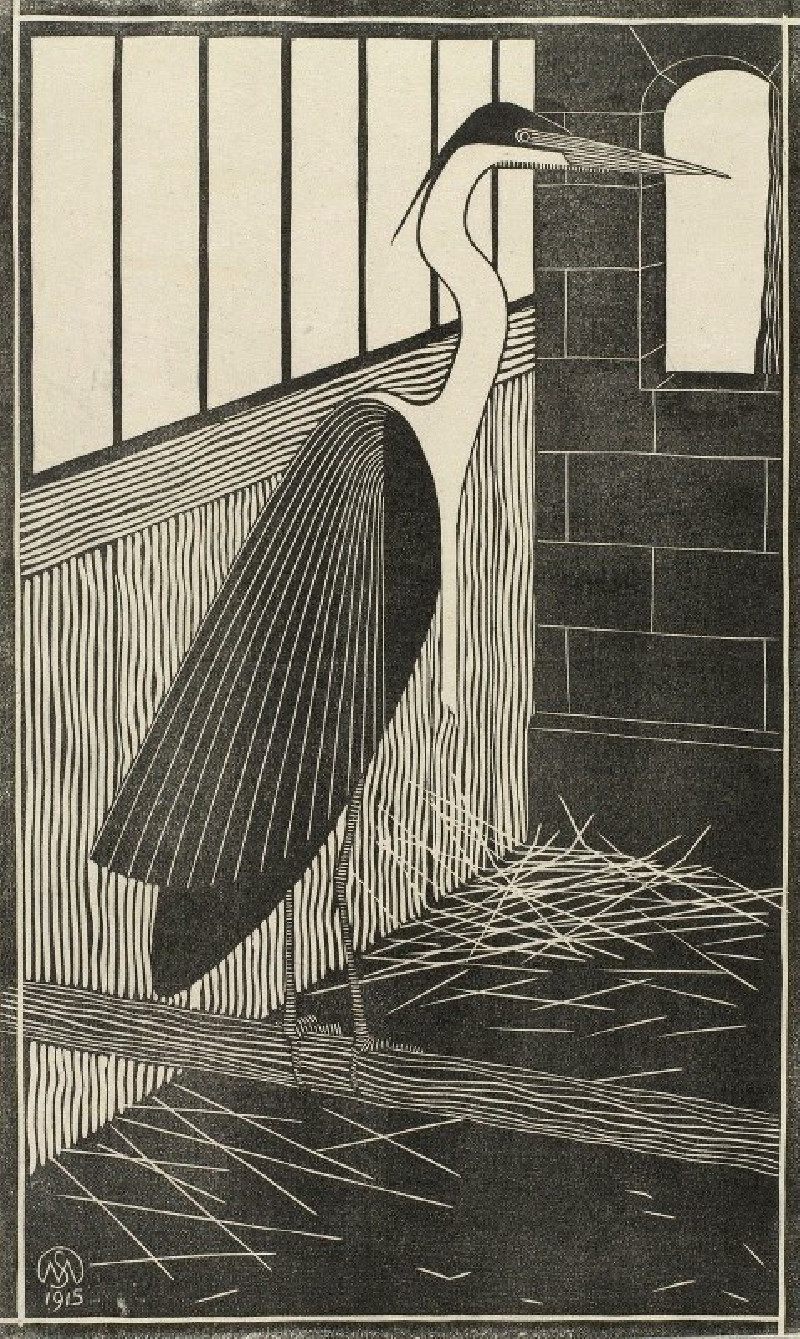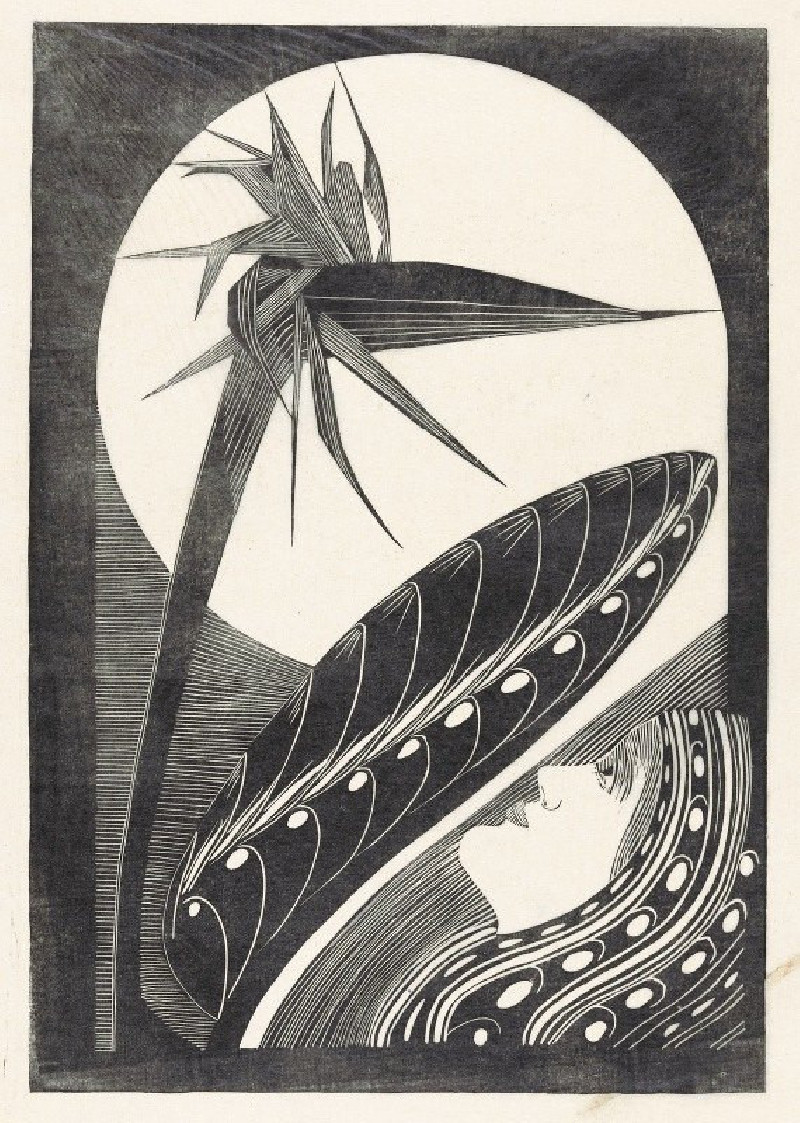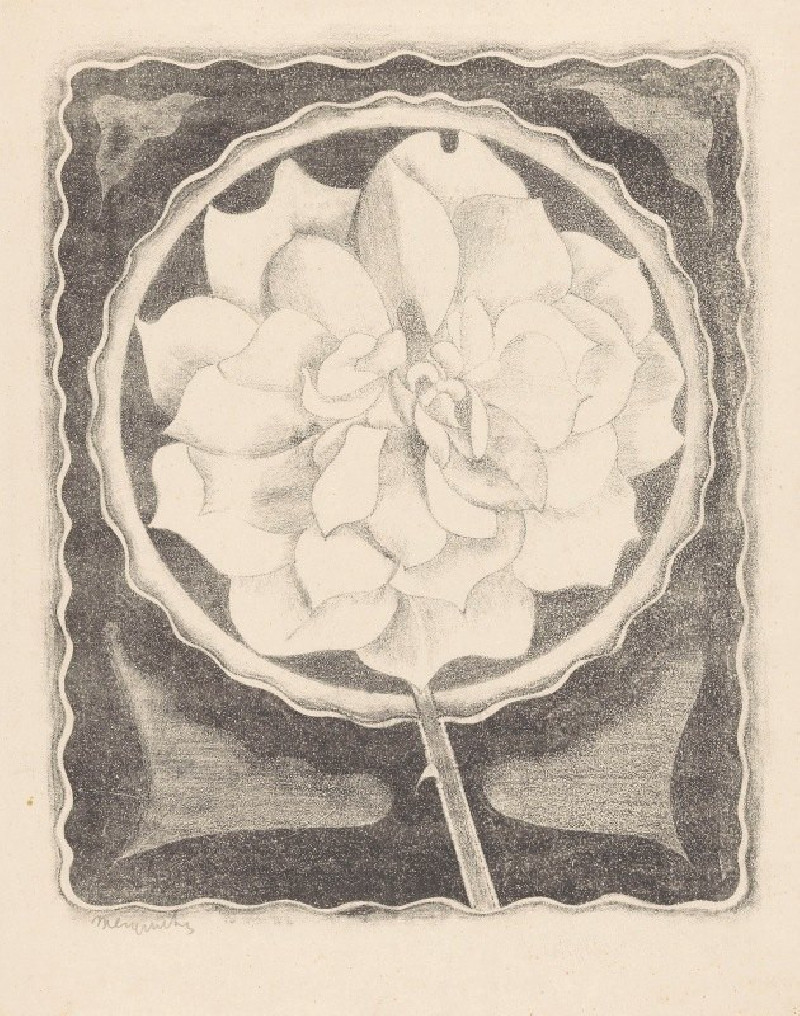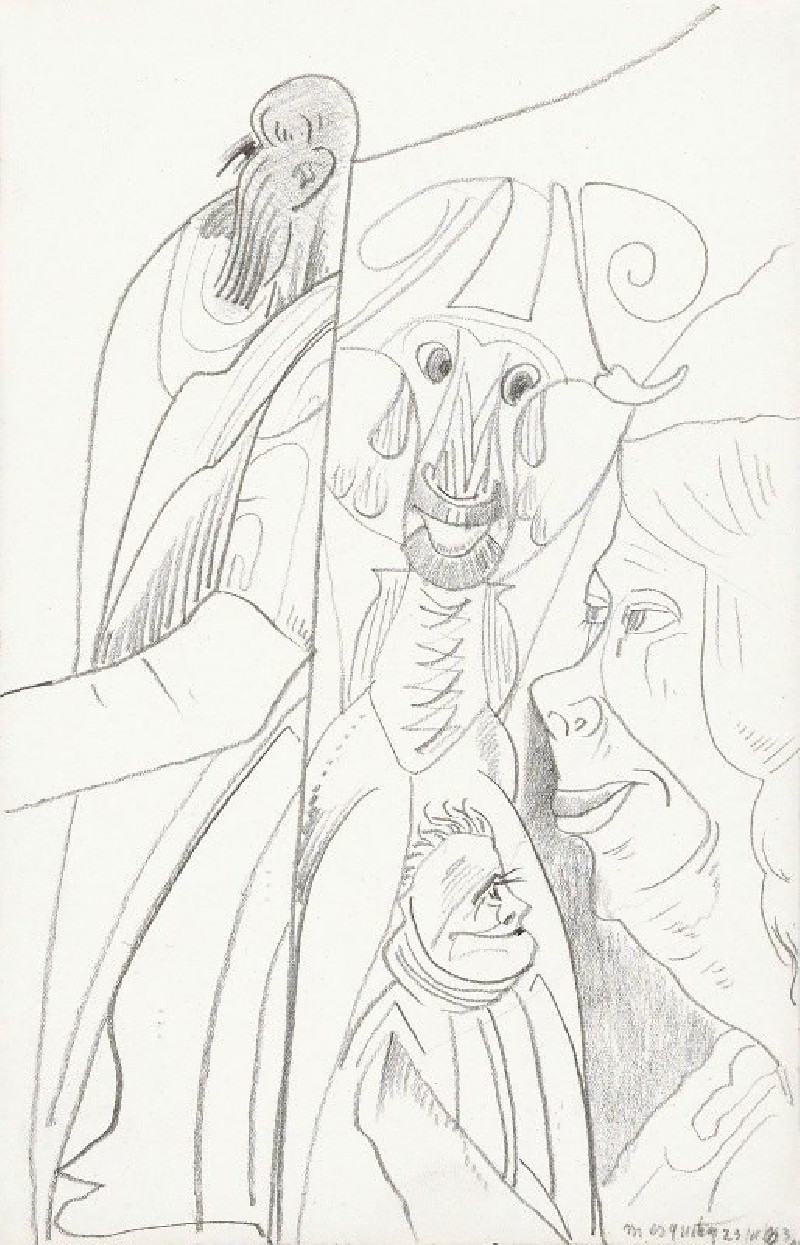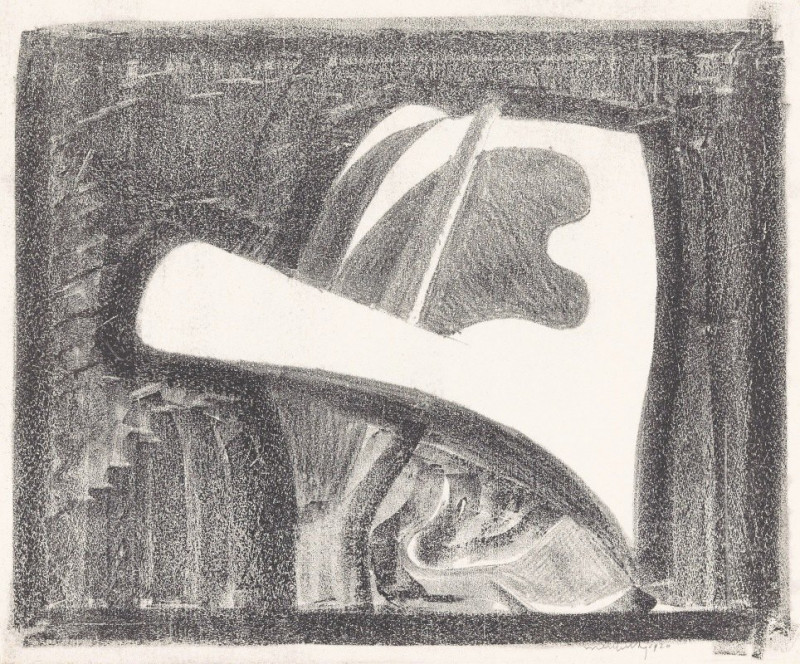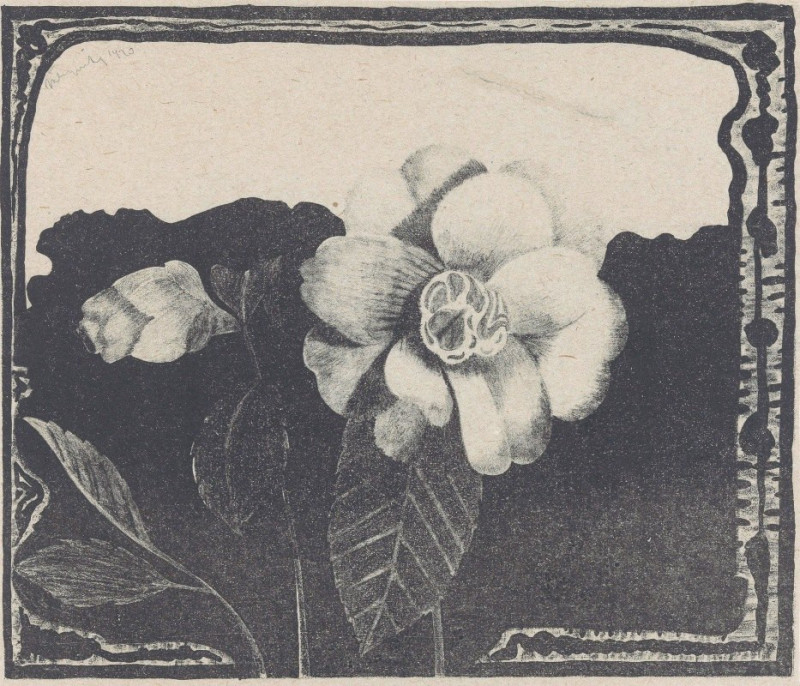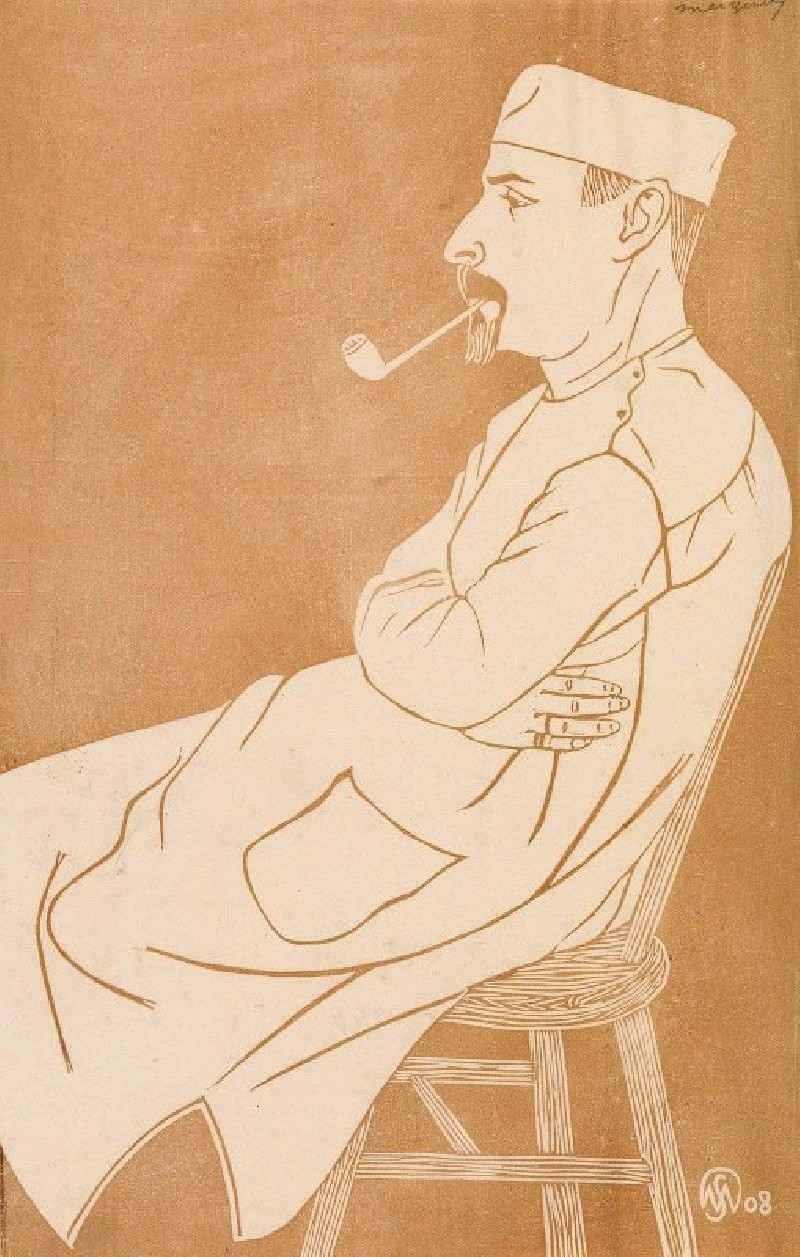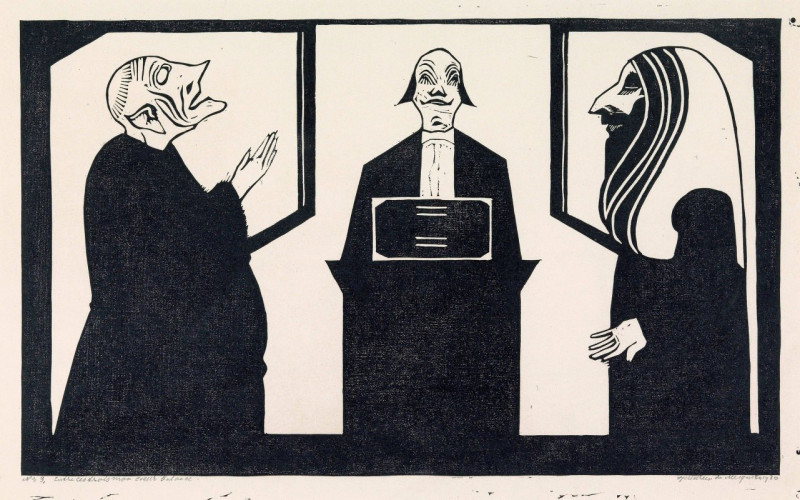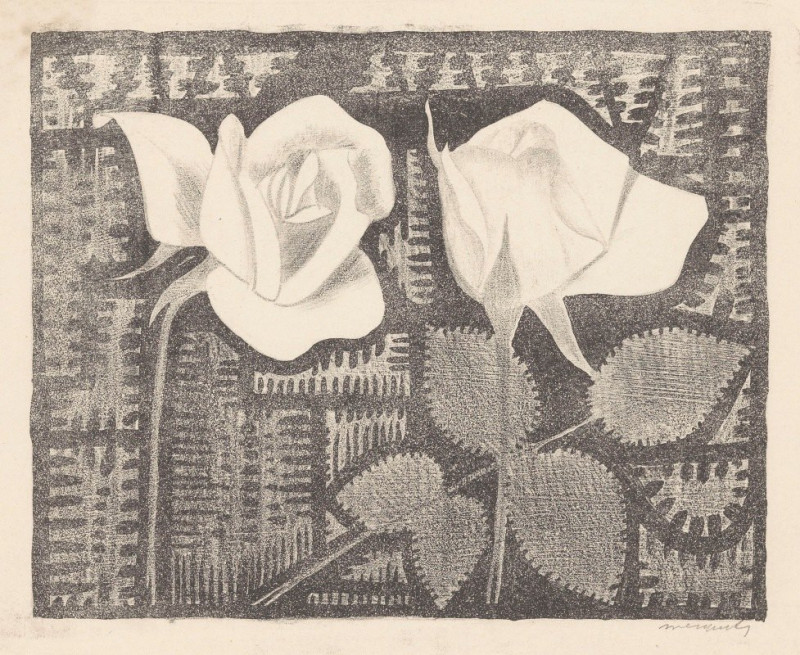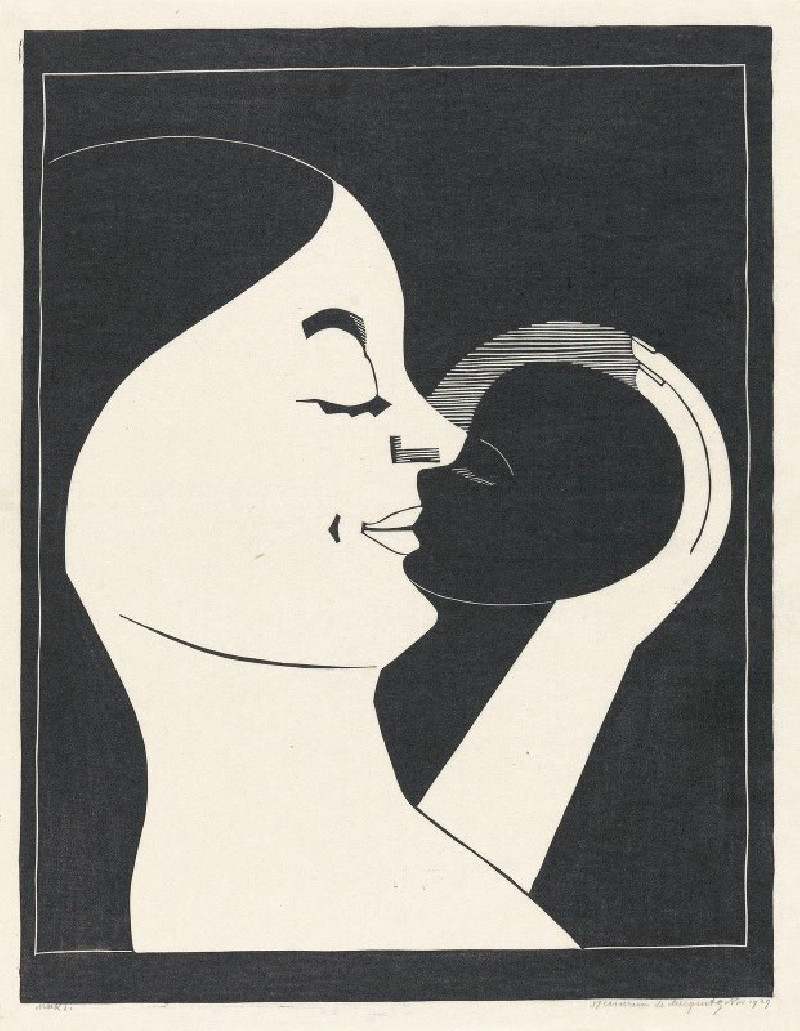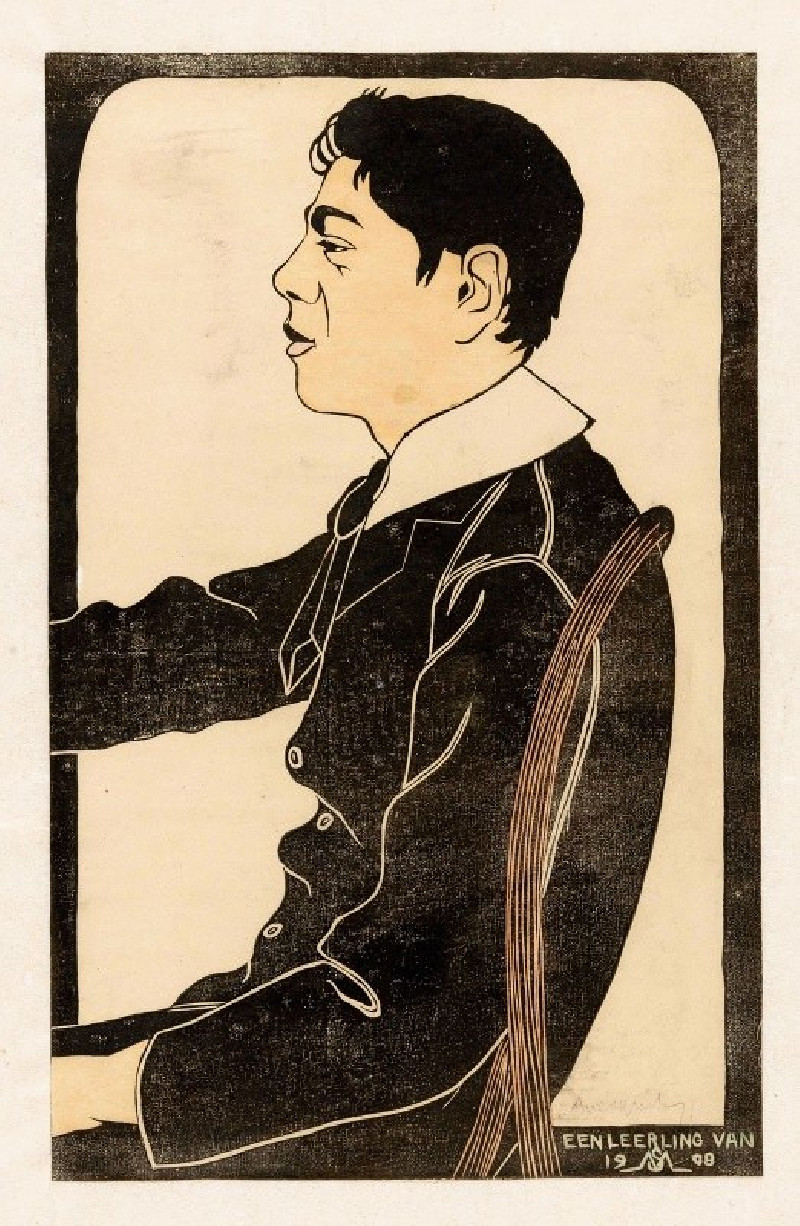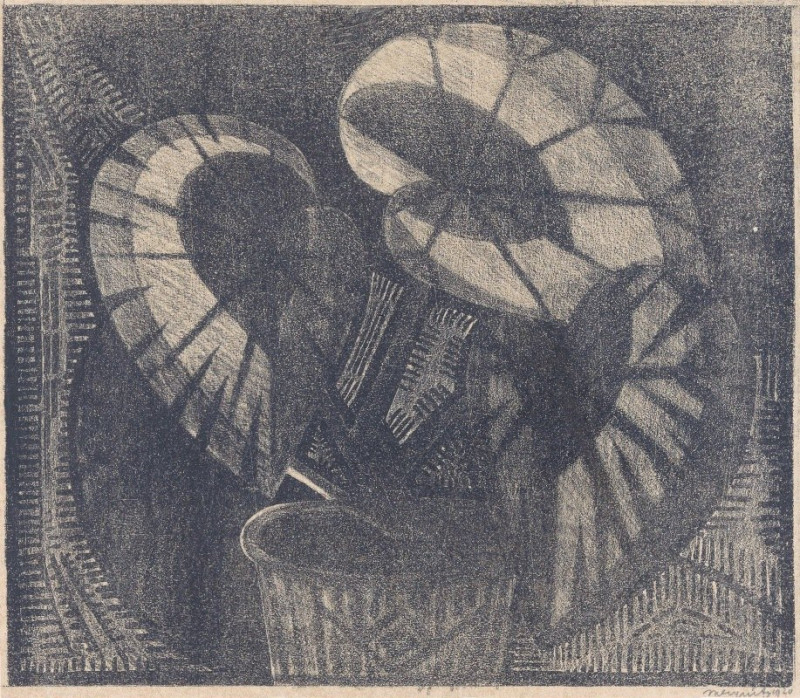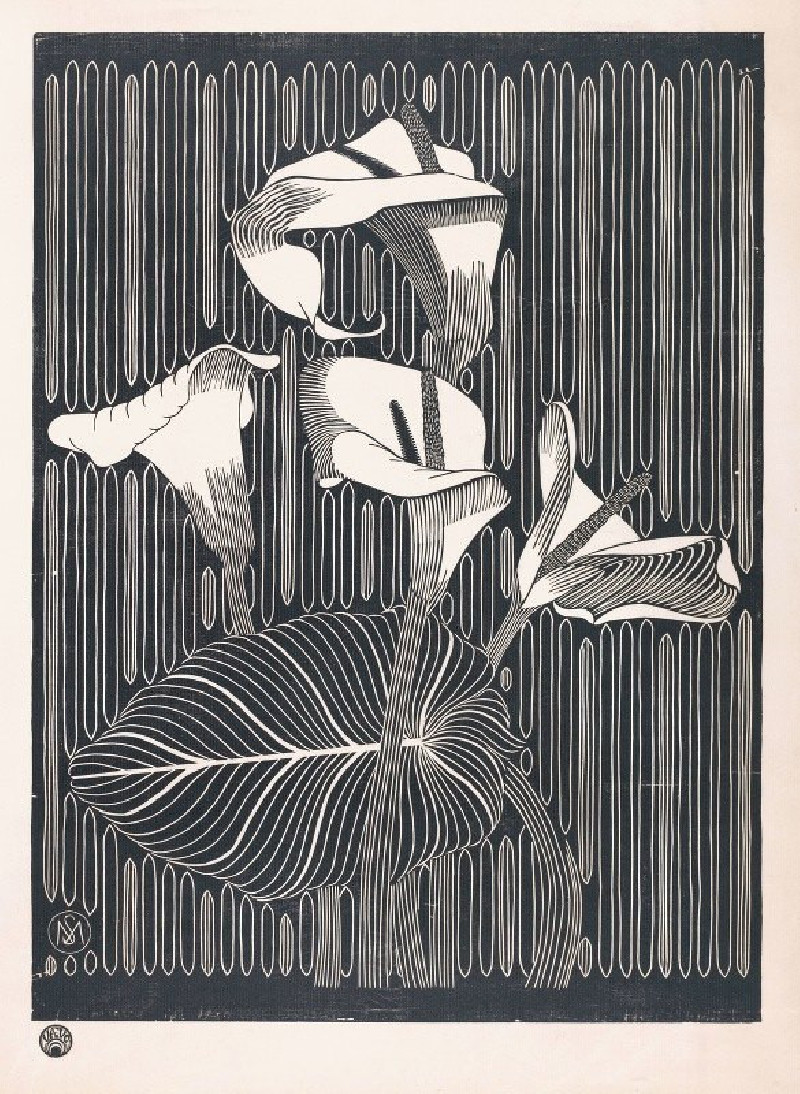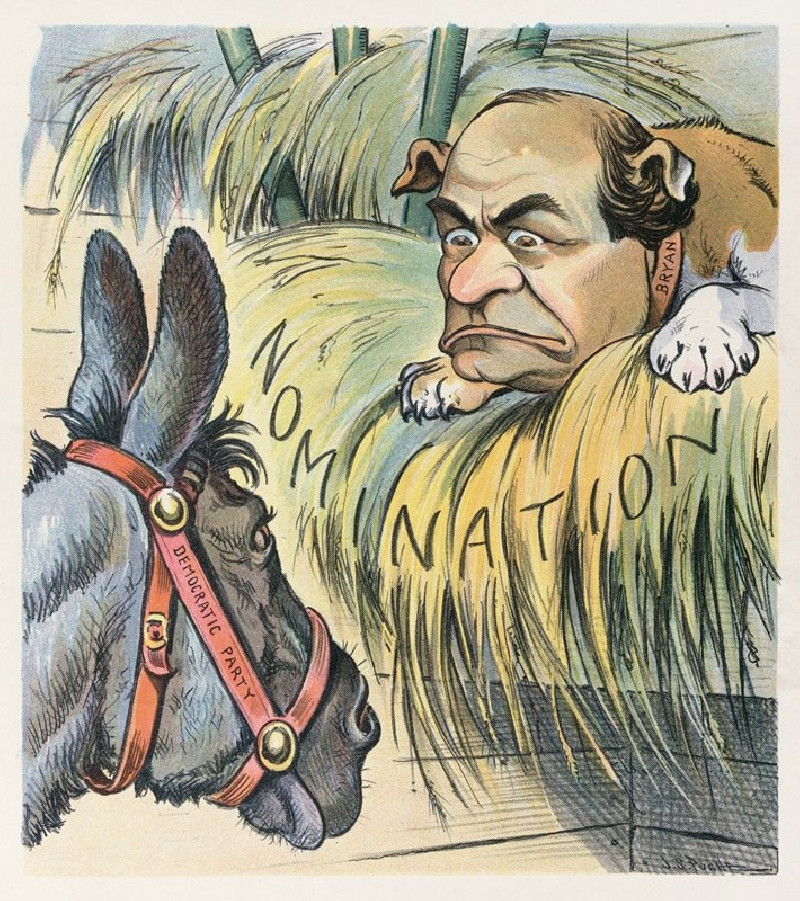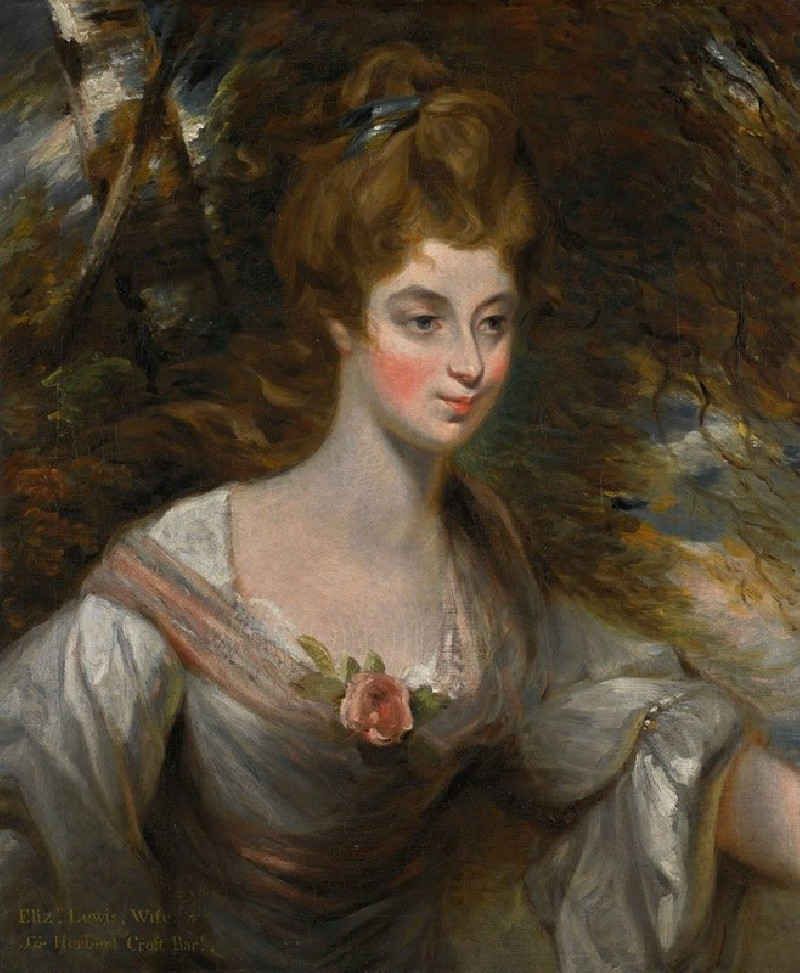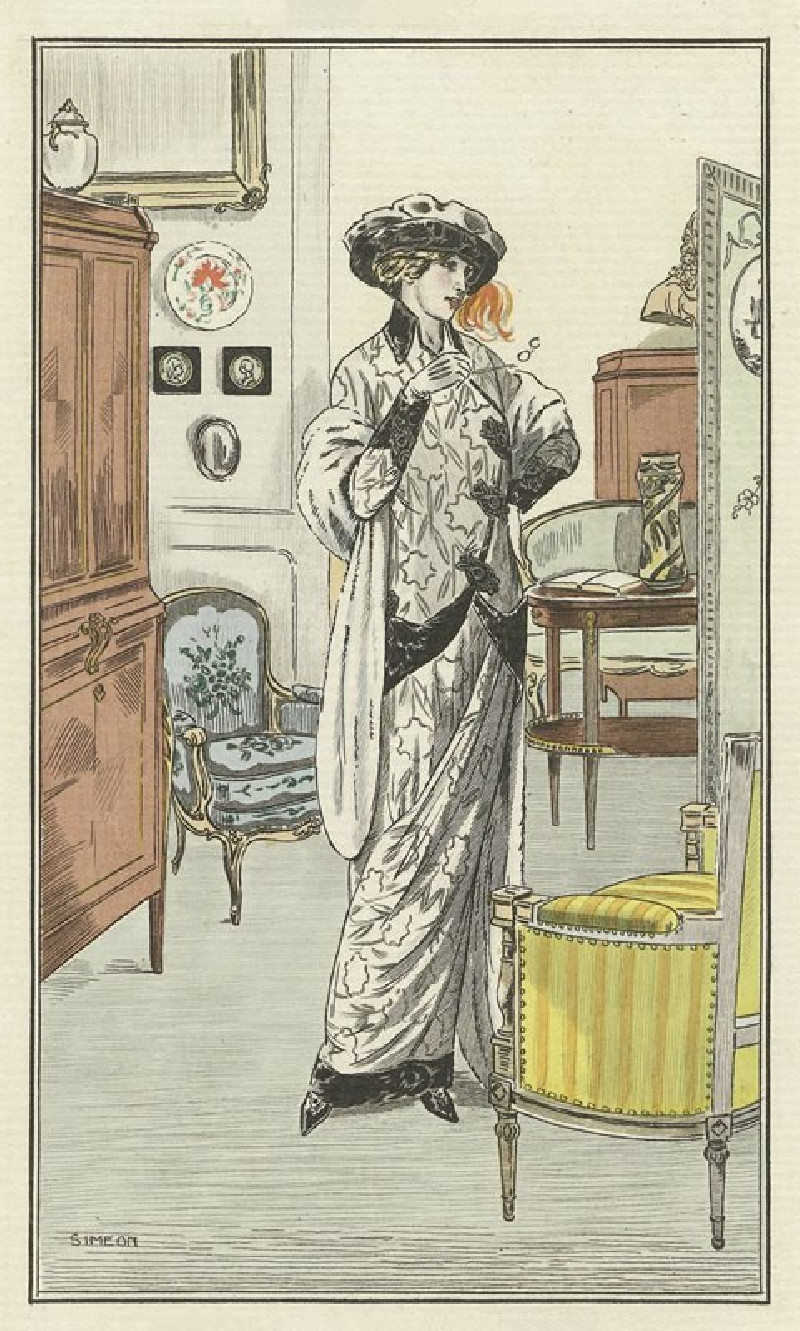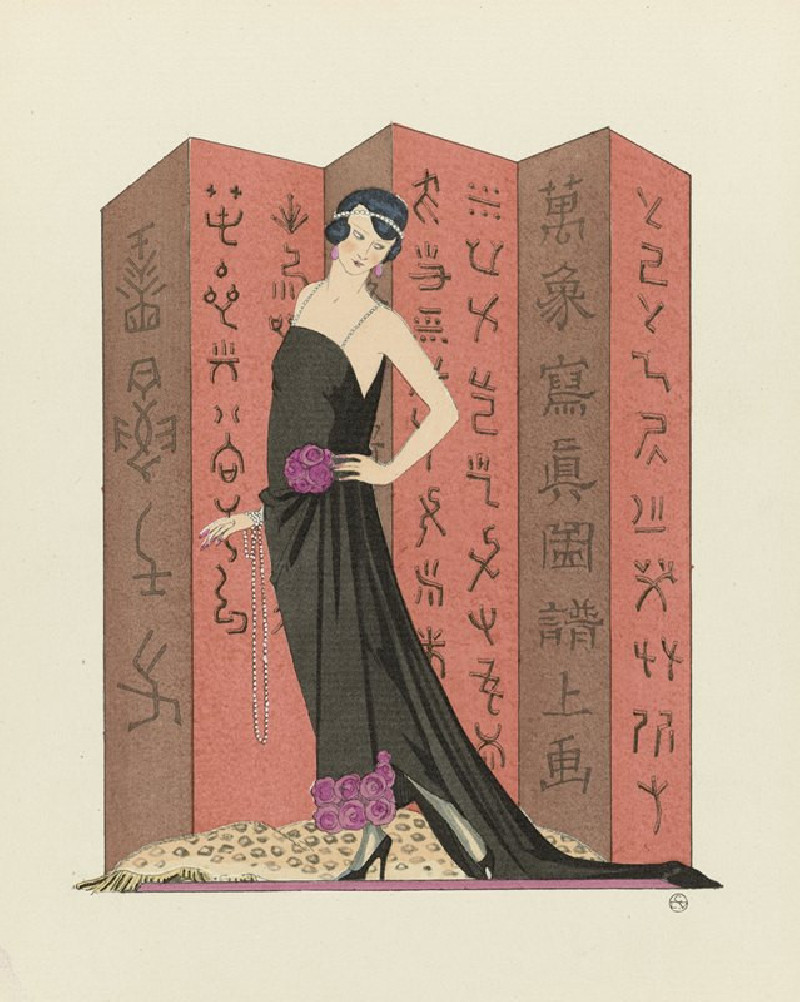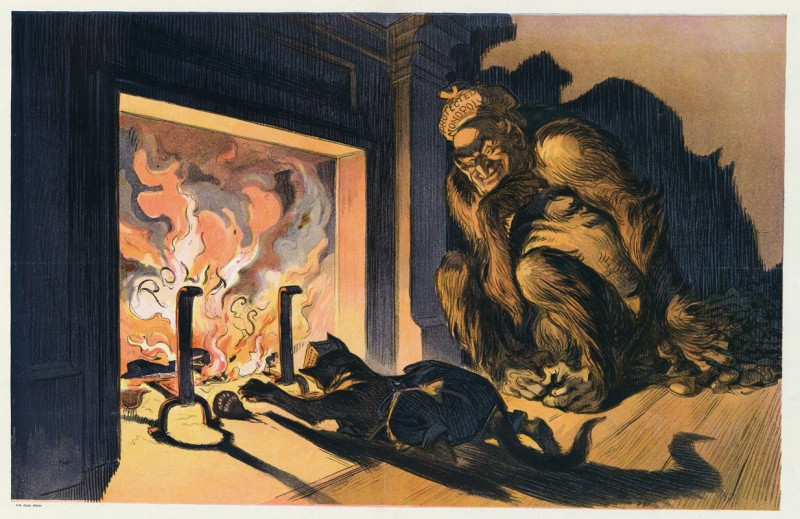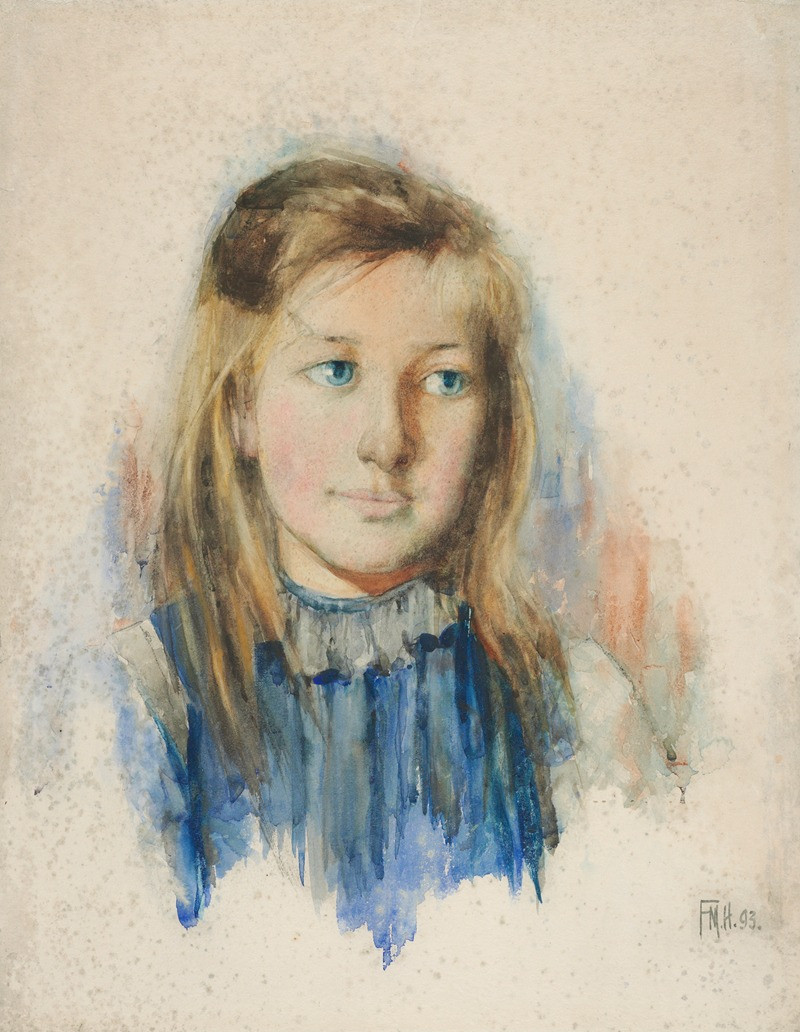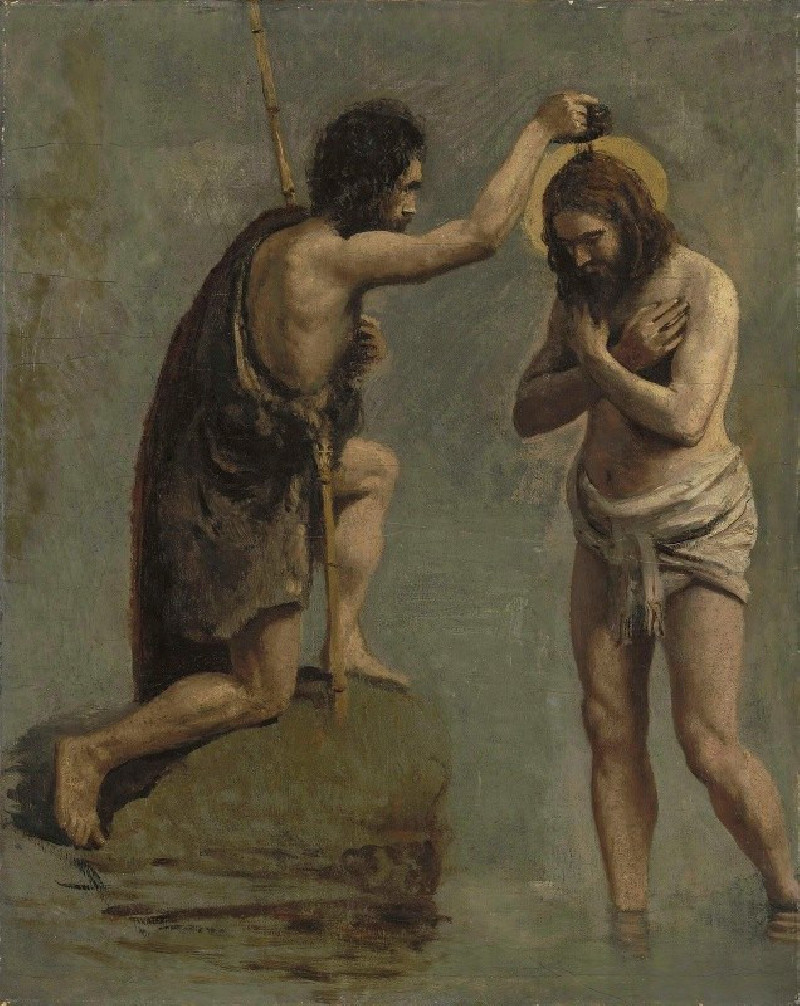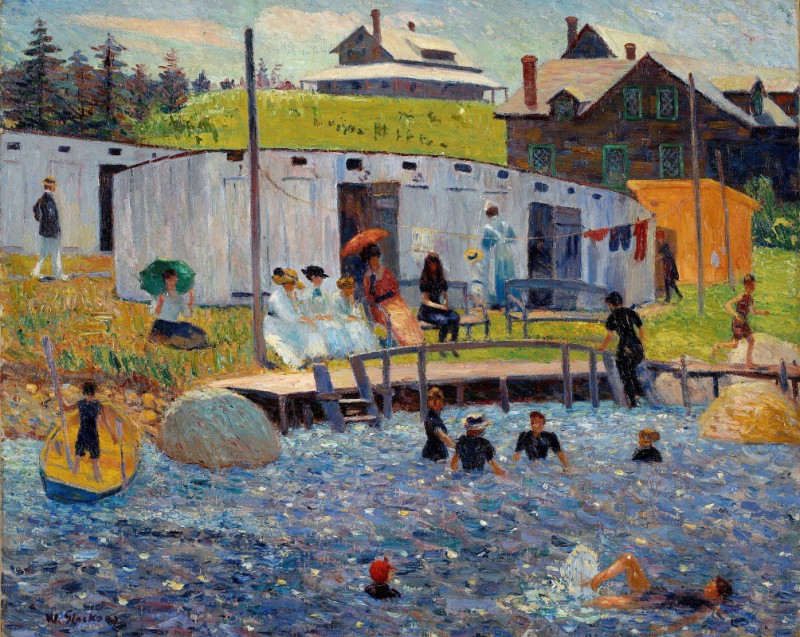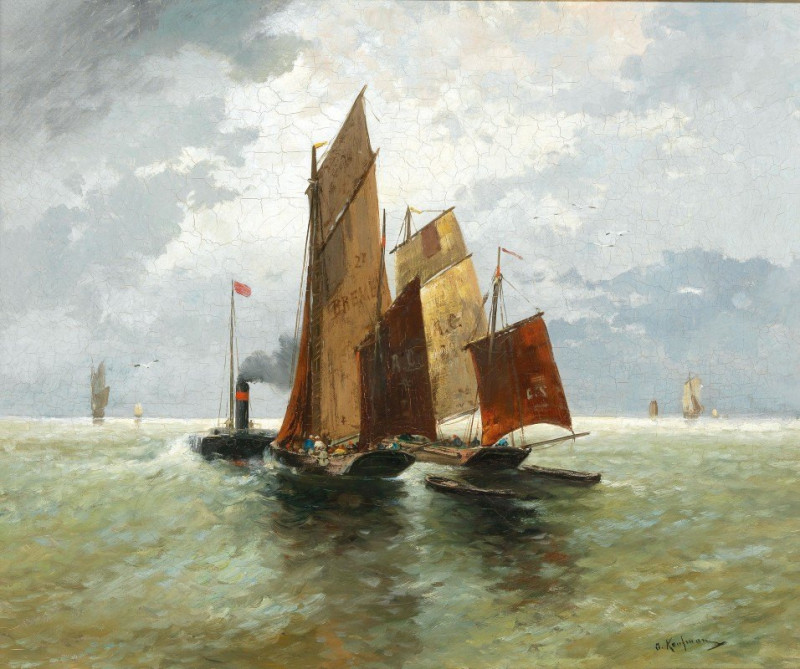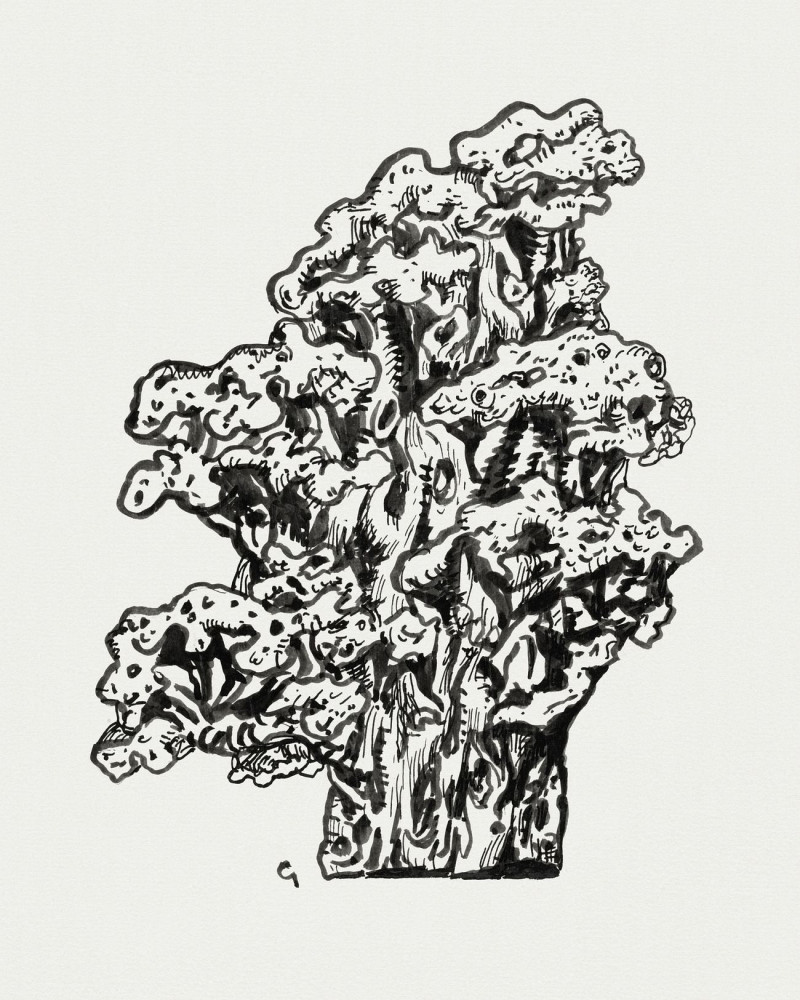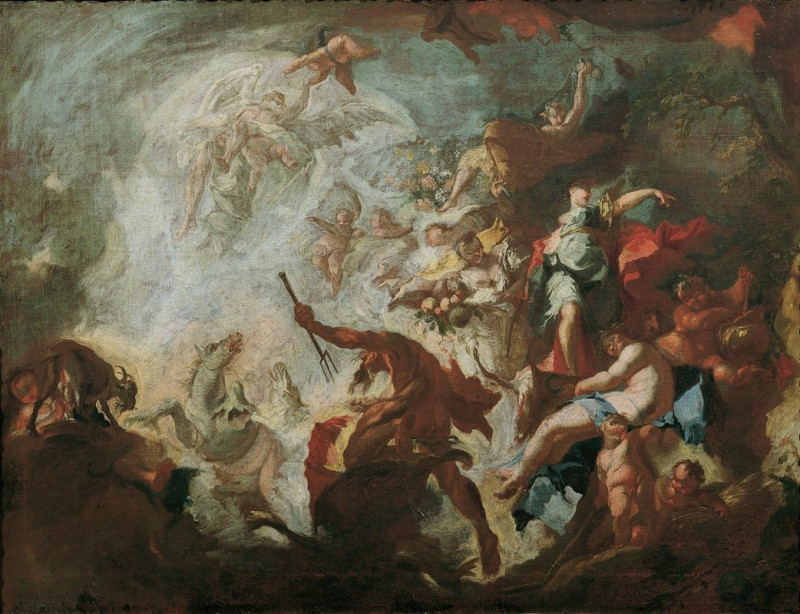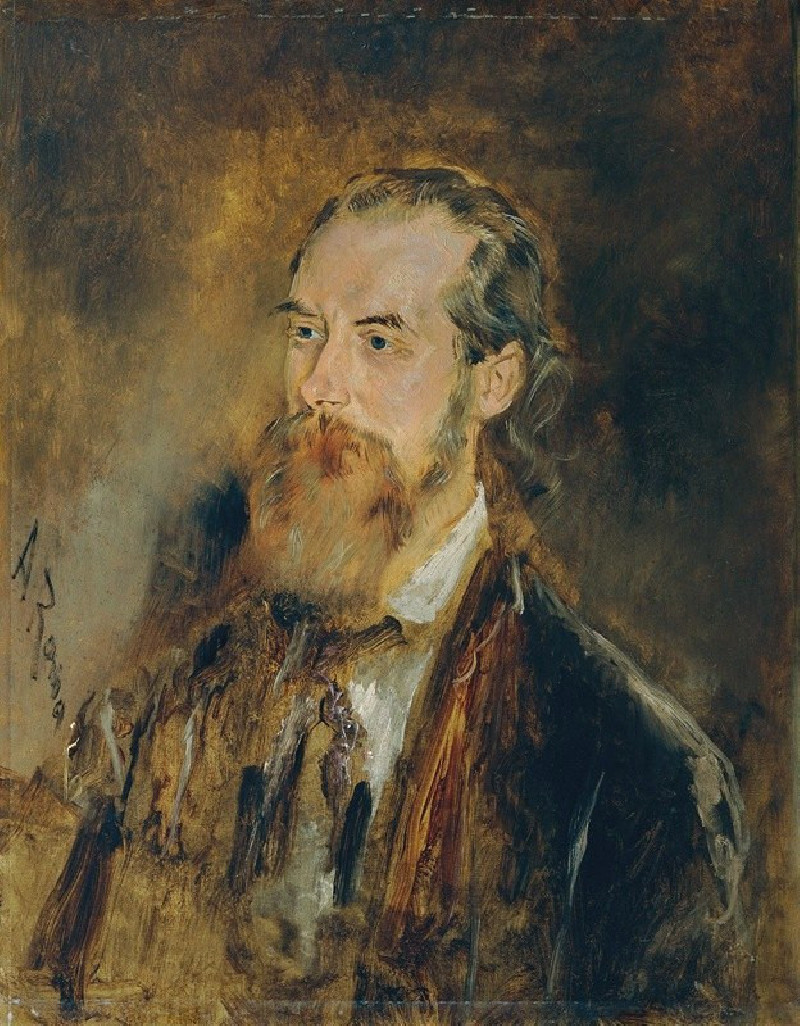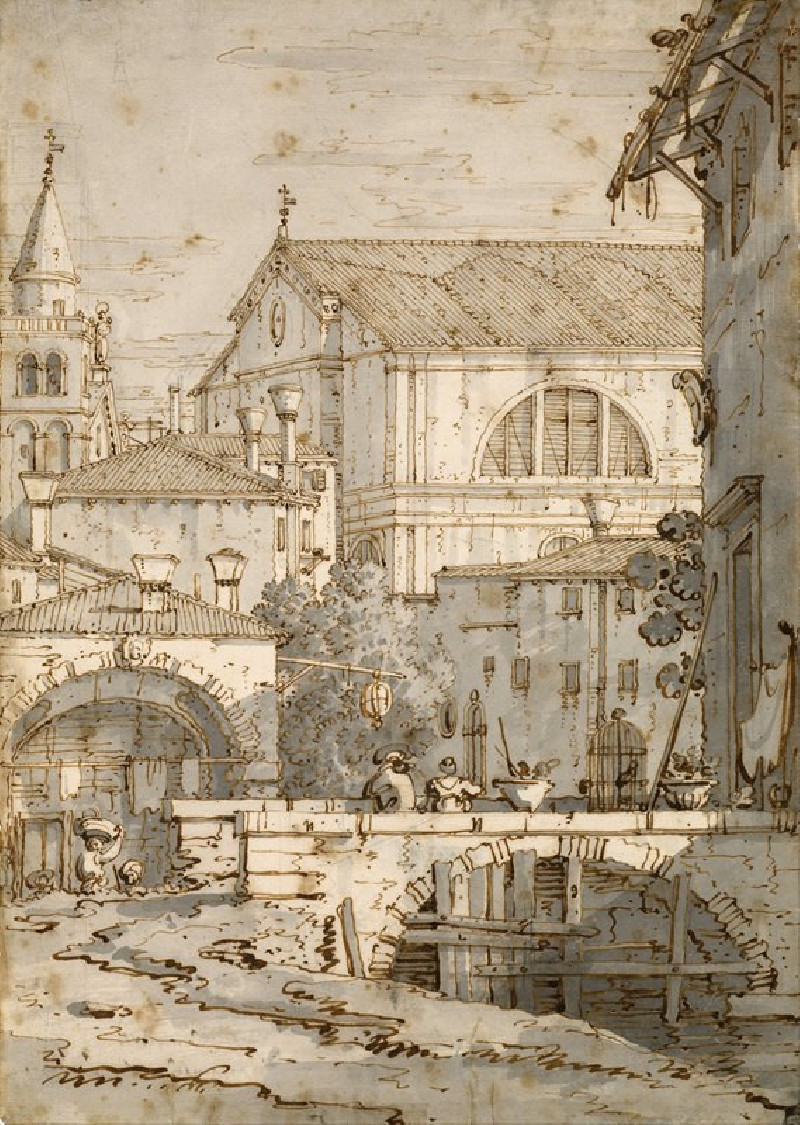Orangoetan (1914)
Technique: Giclée quality print
Recommended by our customers
More about this artwork
"Orangoetan" (1914) by Samuel Jessurun de Mesquita introduces viewers to a striking and emotionally resonant portrait of an orangutan. This woodcut print demonstrates Mesquita's skillful use of line and contrast to depict the introspective and somewhat somber expression of the subject. The orangutan is illustrated with large, entrancing eyes that invite a connection, suggesting a depth of emotion and contemplation not often assigned to animals in art.The simplicity of the background, featuring a rounded, moon-like form, focuses the viewer’s attention squarely on the animal, enhancing its central presence in the composition. The texture and curvature of the lines give the figure a dynamic yet gentle appearance, while the dark tones provide a stark, almost melancholic atmosphere. Through "Orangoetan," Mesquita not only showcases his mastery in printmaking but also challenges us to consider the emotional and sentient life of other species.
Delivery
Returns
Samuel Jessurun de Mesquita was a Dutch graphic artist active in the years before the Second World War. His pupils included graphic artist M. C. Escher (1898–1972). A Sephardic Jew, in his old age he was sent to Auschwitz by the Nazis, where he was gassed along with his wife. After the war, de Mesquita was largely forgotten.

